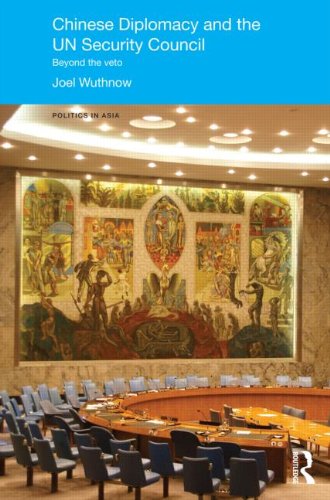

Most ebook files are in PDF format, so you can easily read them using various software such as Foxit Reader or directly on the Google Chrome browser.
Some ebook files are released by publishers in other formats such as .awz, .mobi, .epub, .fb2, etc. You may need to install specific software to read these formats on mobile/PC, such as Calibre.
Please read the tutorial at this link: https://ebookbell.com/faq
We offer FREE conversion to the popular formats you request; however, this may take some time. Therefore, right after payment, please email us, and we will try to provide the service as quickly as possible.
For some exceptional file formats or broken links (if any), please refrain from opening any disputes. Instead, email us first, and we will try to assist within a maximum of 6 hours.
EbookBell Team

0.0
0 reviewsChina has emerged in the 21st century as a sophisticated, and sometimes contentious, actor in the United Nations Security Council. This is evident in a range of issues, from negotiations on Iran’s nuclear program to efforts to bring peace to Darfur. Yet China’s role as a veto-holding member of the Council has been left unexamined. How does it formulate its positions? What interests does it seek to protect? How can the international community encourage China to be a contributor, and not a spoiler?
This book is the first to address China’s role and influence in the Security Council. It develops a picture of a state struggling to find a way between the need to protect its stakes in a number of ‘rogue regimes’, on one hand, and its image as a responsible rising power on the world stage, on the other. Negotiating this careful balancing act has mixed implications, and means that whilst China can be a useful ally in collective security, it also faces serious constraints. Providing a window not only into China’s behaviour, but into the complex world of decision-making at the UNSC in general, the book covers a number of important cases, including North Korea, Iran, Darfur, Burma, Zimbabwe, Libya and Syria.
Drawing on extensive interviews with participants from China, the US and elsewhere, this book considers not only how the world affects China, but how China impacts the world through its behaviour in a key international institution. As such, it will be of great interest to students and scholars working in the fields of Chinese politics and Chinese international relations, as well as politics, international relations, international institutions and diplomacy more broadly.